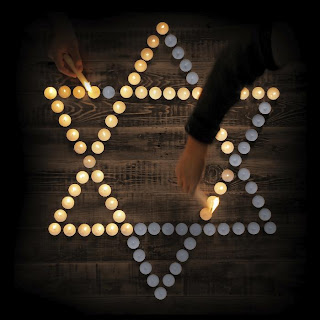If Hashem would only talk to me I would know what He wants from me. How
many times have we heard these or similar words being said, either by
others or even by ourselves? Gaining clarity in this world seems to be
almost impossible and leaves many of us with an overwhelming sense of
inescapable confusion. Interestingly, there are lessons in this week's
Torah reading which seem to contradict our inclination of giving in to
such doubts.
In this week's Torah reading, we are taught about the frightening consequences of not fulfilling our responsibilities as established by the Torah. The repercussions are intense and serious and leave us with little doubt that our relationship with Hashem is not to be taken casually. On even a basic reading of this section one part of the retribution is particularly difficult to understand. The Torah paints for us the downward spiral of those Jews that distance themselves first from learning Torah, subsequently from the performance of mitzvot, and finally from a belief in Hashem Himself. The Torah outlines a seven step process of spiritual degradation and the terrible fate that befalls us for having dropped these seven levels. The verses describe that measure for measure we will be punished for the seven transgressions we performed. Rashi details how each of the hardships mentioned add up to the number seven. This seven step punishment/wake-up call is a chilling response to the seven steps of spiritual slumber the Jewish people have taken.
If the seven punishments are to be effective in waking us, we would assume that such a pattern should carry great significance. If not, there is punishment without a window of understanding. Based on numerous sources that is something that Hashem, our Healer, does not do. However, if we attempt to picture individuals or groups going through such suffering, it seems difficult to picture that they would have the clarity to count the seven afflictions and then match them with the seven spiritual steps that led them away from Hashem. It seems that Hashem is teaching us that even in the greatest of difficulties we have the ability to hear Hashem "talking" to us. Our job is to listen. This inability or unwillingness to see the interconnections of life reveals a callousness that itself is a cause for continued tribulations.
In this week's Torah reading, we are taught about the frightening consequences of not fulfilling our responsibilities as established by the Torah. The repercussions are intense and serious and leave us with little doubt that our relationship with Hashem is not to be taken casually. On even a basic reading of this section one part of the retribution is particularly difficult to understand. The Torah paints for us the downward spiral of those Jews that distance themselves first from learning Torah, subsequently from the performance of mitzvot, and finally from a belief in Hashem Himself. The Torah outlines a seven step process of spiritual degradation and the terrible fate that befalls us for having dropped these seven levels. The verses describe that measure for measure we will be punished for the seven transgressions we performed. Rashi details how each of the hardships mentioned add up to the number seven. This seven step punishment/wake-up call is a chilling response to the seven steps of spiritual slumber the Jewish people have taken.
If the seven punishments are to be effective in waking us, we would assume that such a pattern should carry great significance. If not, there is punishment without a window of understanding. Based on numerous sources that is something that Hashem, our Healer, does not do. However, if we attempt to picture individuals or groups going through such suffering, it seems difficult to picture that they would have the clarity to count the seven afflictions and then match them with the seven spiritual steps that led them away from Hashem. It seems that Hashem is teaching us that even in the greatest of difficulties we have the ability to hear Hashem "talking" to us. Our job is to listen. This inability or unwillingness to see the interconnections of life reveals a callousness that itself is a cause for continued tribulations.









































